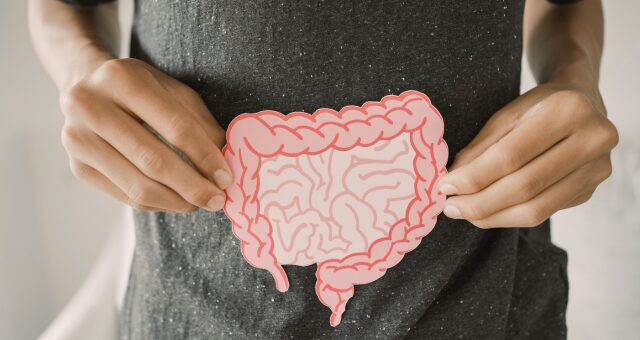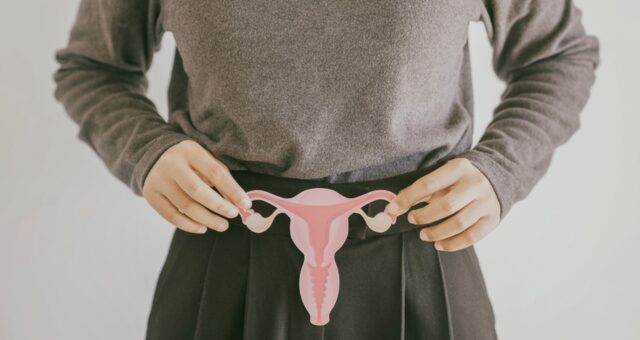Medically Reviewed by Lucas Rosa, PhD in Molecular Biology
You’ve probably heard the saying, “you are what you eat,” but a more accurate version might be: you are what your gut can absorb and signal. Your gut isn’t just responsible for digestion – it’s a major player in your overall hormonal health.
In fact, researchers now refer to the gut as the “second brain” because of how closely it communicates with your nervous and endocrine (hormonal) systems. The gut has a network of neurons that is only surpassed by the brain itself!
In this article, we’ll explore what gut health really means, how the gut produces and interacts with hormones, what happens when your gut is out of balance, and the natural steps you can take to restore harmony between your gut and your hormones.
What Is Gut Health?
When we talk about gut health, we’re referring to the balance and function of the entire digestive system – from your mouth to your intestines. But especially important is the gut microbiome, a complex community of trillions of bacteria and other microorganisms living in your intestines. A healthy gut:
- Properly digests and absorbs nutrients
- Maintains a strong intestinal barrier
- Supports immune function
- Produces and regulates important hormones and neurotransmitters
When this delicate ecosystem is imbalanced – by poor diet, antibiotics, stress, or lack of sleep – it can lead to a condition called gut dysbiosis, which has a ripple effect on your hormones and overall health.

What Are Hormones and Why Do They Matter?
Hormones are signaling molecules that travel through your bloodstream to regulate key processes in your body – like metabolism, mood, energy, growth, sleep, and reproduction. They are produced by glands such as the thyroid, adrenal glands, pancreas, and ovaries or testes.
What many people don’t realize is that several hormones are also produced in the gut or are influenced by gut activity. This makes gut health a central player in keeping your hormones functioning smoothly.
Hormones Produced in the Gut
Your gut isn’t just a passive receiver of signals – it also makes hormones. Here are some of the most important ones:
- Serotonin: Around 90–95% of this “feel good” neurotransmitter is made in the gut. It influences mood, sleep, appetite, and digestion.
- Ghrelin: Produced in the stomach, it signals hunger to your brain.
- Leptin: Though produced in fat cells, leptin works closely with gut hormones to regulate fullness.
- Peptide YY and GLP-1: Released after eating to promote satiety and help regulate blood sugar.
- Motilin: Helps move food through the digestive tract.
When your gut microbiome is thriving, these hormones work in balance. When disrupted, they can swing too high or too low, leading to cravings, mood issues, and digestive problems.
How Gut Health Influences Hormones (and Vice Versa)
A healthy gut supports healthy hormones – and balanced hormones support gut health. Here’s how the connection works both ways:
Gut → Hormones:
- A strong gut barrier prevents toxins from leaking into the bloodstream, which helps lower chronic inflammation – a key cause of hormonal imbalance.
- A healthy microbiome breaks down fiber into short-chain fatty acids (SCFAs), which help regulate insulin and reduce cortisol.
- Gut bacteria influence estrogen metabolism, helping to clear excess estrogen and keep reproductive hormones balanced.
Hormones → Gut:
- Stress hormones like cortisol can thin the gut lining and reduce beneficial bacteria.
- Thyroid hormones influence how quickly food moves through your intestines – too much can cause diarrhea, too little may lead to constipation.
- Fluctuating sex hormones (estrogen and progesterone) impact gut motility, which is why many experience bloating or digestive changes around their menstrual cycle.
So when one system is off – either the gut or hormones – the other often follows.

Signs Your Gut May Be Affecting Your Hormones
Sometimes, your gut might be the root cause of those confusing hormonal symptoms. Here are some signs to watch for:
- Frequent bloating, gas, or indigestion
- Constipation or diarrhea
- Food sensitivities or intolerances
- Unexplained weight gain or sugar cravings
- Irregular menstrual cycles or worsened PMS
- Skin issues like acne or eczema
- Mood swings, anxiety, or low energy
If you’re experiencing several of these, it could mean your gut needs attention.
Natural Ways to Improve Gut Health
Here’s the good news: improving your gut health can be simple, natural, and incredibly effective. These steps help restore microbial diversity and reduce inflammation – creating a foundation for better hormonal balance.
Eat more fiber-rich whole foods
A diverse, plant-rich diet is one of the best ways to support your gut microbiome. Foods like leafy greens, berries, lentils, beans, and whole grains act as fuel for your beneficial gut bacteria. As they ferment fiber in your colon, these microbes produce short-chain fatty acids (SCFAs), which reduce inflammation and support hormone metabolism. Plus, fiber helps bind and eliminate excess estrogen through bowel movements – making it essential for hormonal balance. (1)
Include fermented foods daily
Fermented foods are natural sources of probiotics – live beneficial bacteria that enhance your gut’s microbial diversity. Adding just a few tablespoons of sauerkraut or kimchi to your meals, sipping on kombucha, or enjoying unsweetened yogurt or kefir can help restore the balance of good bacteria. This supports not only digestion but also the gut’s ability to produce and regulate hormone-related compounds like serotonin and GLP-1. (2)
Stay hydrated
Water might not seem like a gut health tool, but it’s crucial for keeping your digestive system moving smoothly. Proper hydration helps break down food, support nutrient absorption, and flush out toxins and hormone byproducts through the kidneys and bowels. Aim for at least 6–8 glasses of water a day, more if you’re active or live in a hot climate. (3)
Reduce sugar and processed foods
Highly processed snacks, sugary beverages, refined carbs, and food additives feed harmful microbes like yeast and bad bacteria, which can crowd out your good flora. This imbalance may trigger inflammation and disrupt important hormonal signals like insulin, leptin, and cortisol. Cutting back on processed foods helps your good bacteria thrive – and that has a direct benefit for your mood, metabolism, and reproductive health. (4)
Manage stress levels
Your gut and brain are in constant communication through the gut-brain axis. When you’re under chronic stress, your body releases high levels of cortisol, which can thin the gut lining, lower microbial diversity, and increase inflammation. Daily stress-reducing activities – like deep breathing, walking in nature, journaling, or light yoga – can calm the nervous system and allow your gut (and hormones) to function properly. (5)
Get enough sleep
Just like your brain, your gut microbes follow a circadian rhythm. Poor sleep or irregular sleep schedules can throw off that rhythm, reducing the number of beneficial bacteria and increasing gut inflammation. Consistently getting 7–9 hours of quality sleep per night helps stabilize hormone production, including melatonin, cortisol, and insulin, and supports optimal gut function. (6)

Consider prebiotics and probiotics
Prebiotics are types of fiber that feed your good gut bacteria. Foods like garlic, onions, asparagus, oats, and bananas naturally boost beneficial microbes. Probiotic supplements can be helpful too – especially after antibiotic use or illness – to repopulate your gut with friendly bacteria. Together, prebiotics and probiotics create a healthy ecosystem that strengthens your gut lining, enhances nutrient absorption, and supports hormonal balance. (7)
Take Away
Your gut is one of the most powerful regulators of your hormonal system. When it’s working well, it supports the smooth production, detoxification, and communication of key hormones involved in energy, mood, appetite, metabolism, and reproduction. But when your gut is out of balance, even clean eating or exercise might not be enough to fix hormonal issues.
Fortunately, many of the best ways to support gut health are completely within your control – like eating whole foods, reducing stress, and improving sleep. By tuning into your gut and giving it what it needs, you’re not just supporting digestion – you’re laying the foundation for lasting hormonal balance and overall vitality.
References
- Fu J, Zheng Y, Gao Y, Xu W. Dietary Fiber Intake and Gut Microbiota in Human Health. Microorganisms. 2022 Dec 18;10(12):2507. doi: 10.3390/microorganisms10122507. PMID: 36557760; PMCID: PMC9787832.
- Leeuwendaal NK, Stanton C, O’Toole PW, Beresford TP. Fermented Foods, Health and the Gut Microbiome. Nutrients. 2022 Apr 6;14(7):1527. doi: 10.3390/nu14071527. PMID: 35406140; PMCID: PMC9003261.
- Vanhaecke T, Bretin O, Poirel M, Tap J. Drinking Water Source and Intake Are Associated with Distinct Gut Microbiota Signatures in US and UK Populations. J Nutr. 2022 Jan 11;152(1):171-182. doi: 10.1093/jn/nxab312. PMID: 34642755; PMCID: PMC8754568.
- Whelan K, Bancil AS, Lindsay JO, Chassaing B. Ultra-processed foods and food additives in gut health and disease. Nat Rev Gastroenterol Hepatol. 2024 Jun;21(6):406-427. doi: 10.1038/s41575-024-00893-5. Epub 2024 Feb 22. PMID: 38388570.
- Madison A, Kiecolt-Glaser JK. Stress, depression, diet, and the gut microbiota: human-bacteria interactions at the core of psychoneuroimmunology and nutrition. Curr Opin Behav Sci. 2019 Aug;28:105-110. doi: 10.1016/j.cobeha.2019.01.011. Epub 2019 Mar 25. PMID: 32395568; PMCID: PMC7213601.
- Smith RP, Easson C, Lyle SM, Kapoor R, Donnelly CP, Davidson EJ, Parikh E, Lopez JV, Tartar JL. Gut microbiome diversity is associated with sleep physiology in humans. PLoS One. 2019 Oct 7;14(10):e0222394. doi: 10.1371/journal.pone.0222394. PMID: 31589627; PMCID: PMC6779243.
- Markowiak P, Śliżewska K. Effects of Probiotics, Prebiotics, and Synbiotics on Human Health. Nutrients. 2017 Sep 15;9(9):1021. doi: 10.3390/nu9091021. PMID: 28914794; PMCID: PMC5622781.
Check Out
HF Swaps
Better products for better hormone health.









